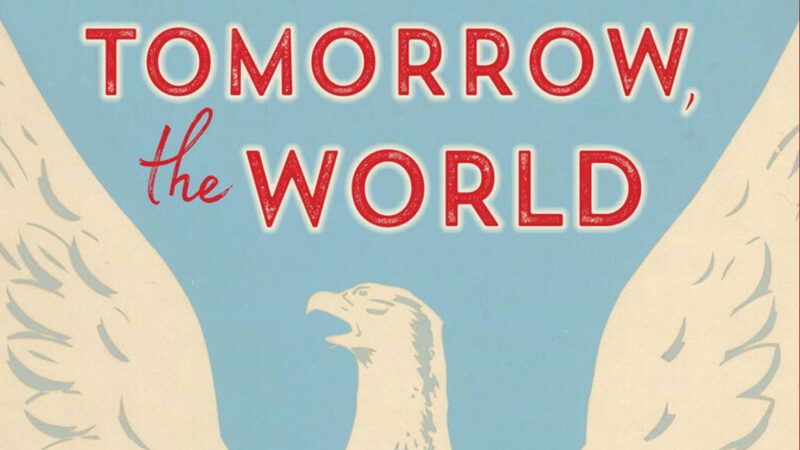Tomorrow, the World
As France fell to Nazi Germany, America's elites glanced nervously eastward and began to envision the U.S. as the new defender of global order.

As France fell to Nazi Germany, America's elites glanced nervously eastward and began to envision the U.S. as the new defender of global order. As historian Stephen Wertheim explains in Tomorrow, the World: The Birth of U.S. Global Supremacy, this gave rise to a distinctly American internationalism.
Fearing a Nazi-controlled Europe, a group of State Department officials and influential foreign policy intellectuals began to imagine a "quarter sphere" trade and defense bloc, with the U.S. protecting North America and much of South America. But as an opening for a new hegemon became apparent, officials expanded their vision, imagining a postwar order in which the U.S. defended practically the entire world. The specifics changed over time, but America's leading role did not. Wertheim, a co-founder of the Quincy Institute who also has a post at Columbia University, argues that it was the conscious choices of this small group, not uncontrollable global forces, that transformed the U.S. from remote observer to active protector.
After Germany lost, the idea persisted. In the wake of the war, decision makers regarded military restraint not as a virtue but as a recipe for chaos. Intervention was seen as inevitable, and isolationism became a dirty word. Politicians debated particular engagements, but they rarely questioned America's role as global cop.
That remains true with President Joe Biden and Secretary of State Antony Blinken holding the reins. Both men proclaim the necessity of American leadership—and American primacy—even as foreign civilians fall victim to global power struggles, American soldiers die abroad, and trillions of taxpayer dollars fund questionable campaigns. But as Wertheim reminds us, foreign policy elites chose to take on this role, and they can choose to leave it behind.


Show Comments (9)